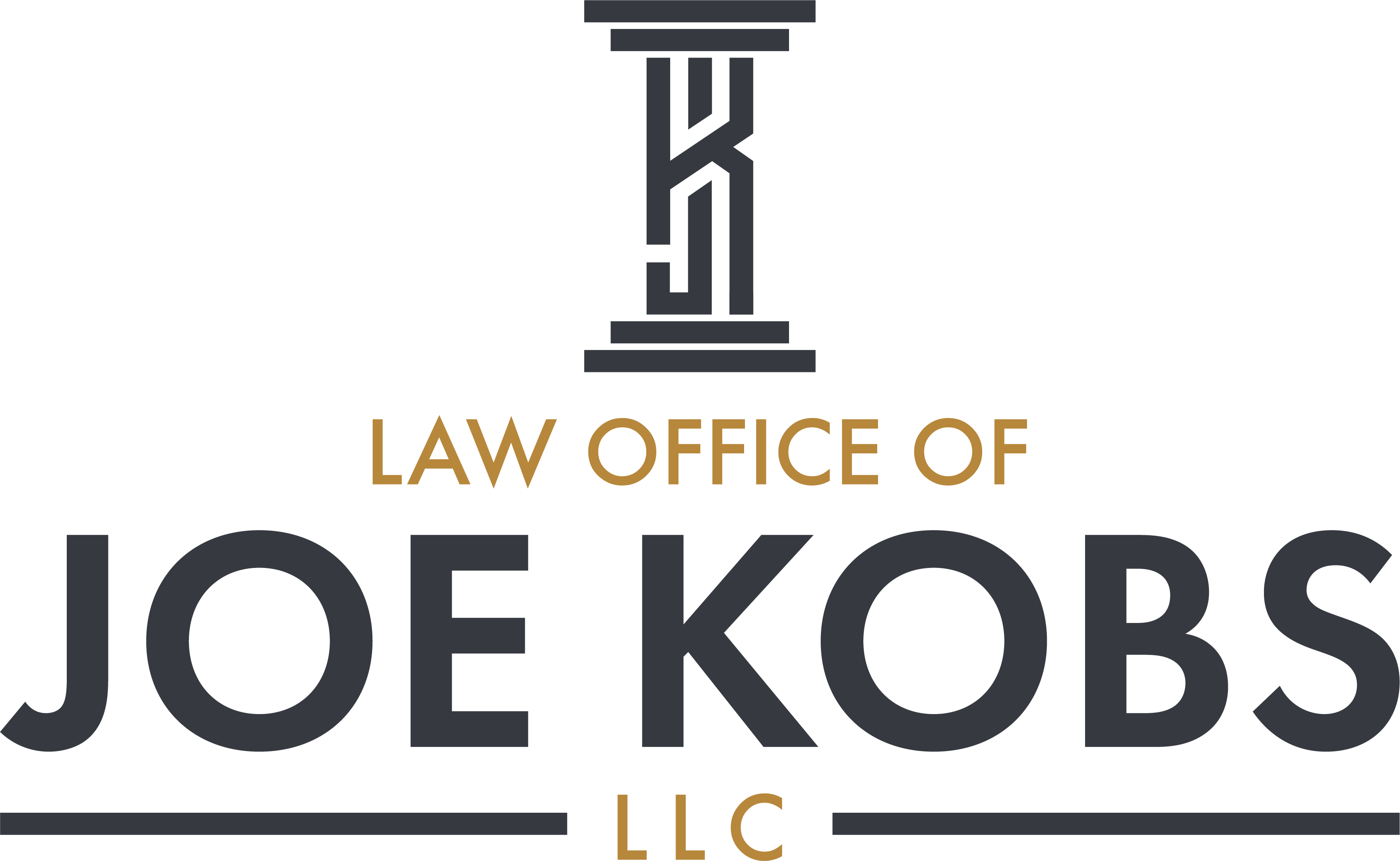[et_pb_section fb_built=”1″ admin_label=”Header” _builder_version=”4.20.0″ _module_preset=”default” use_background_color_gradient=”on” background_color_gradient_stops=”rgba(31,35,44,0.7) 0%|gcid-9fa4a1b6-767d-41ca-984c-a6f10449c843 100%” background_color_gradient_overlays_image=”on” background_image=”https://www.kobslaw.com/wp-content/uploads/2024/08/attorney-21.jpg” locked=”off” collapsed=”on” global_colors_info=”{%22gcid-9fa4a1b6-767d-41ca-984c-a6f10449c843%22:%91%22background_color_gradient_stops%22%93}”][et_pb_row _builder_version=”4.20.0″ _module_preset=”default” global_colors_info=”{}”][et_pb_column type=”4_4″ _builder_version=”4.20.0″ _module_preset=”default” global_colors_info=”{}”][et_pb_text _builder_version=”4.20.0″ _module_preset=”6b927877-cf1d-469e-bce4-d33ab620345c” header_4_text_color=”gcid-2f3f3e09-0a26-4ea7-8906-5e1128945e3f” text_orientation=”center” custom_margin=”||10px||false|false” global_colors_info=”{%22gcid-2f3f3e09-0a26-4ea7-8906-5e1128945e3f%22:%91%22header_4_text_color%22%93}”]
Service
[/et_pb_text][et_pb_image src=”https://www.kobslaw.com/wp-content/uploads/2024/03/attorney-1.png” title_text=”attorney-1″ _builder_version=”4.20.0″ _module_preset=”default” max_width=”130px” module_alignment=”center” global_colors_info=”{}”][/et_pb_image][et_pb_text _builder_version=”4.20.0″ _module_preset=”e2e6a21d-44b4-4b68-879f-4a49b6ee2207″ header_text_color=”gcid-11d3dbbb-f6dc-4fb8-929b-9d6994368d00″ text_orientation=”center” global_colors_info=”{%22gcid-11d3dbbb-f6dc-4fb8-929b-9d6994368d00%22:%91%22header_text_color%22%93}”]
estate planning
[/et_pb_text][/et_pb_column][/et_pb_row][/et_pb_section][et_pb_section fb_built=”1″ admin_label=”Service Info” _builder_version=”4.20.0″ _module_preset=”default” background_color=”gcid-9fa4a1b6-767d-41ca-984c-a6f10449c843″ collapsed=”on” global_colors_info=”{%22gcid-9fa4a1b6-767d-41ca-984c-a6f10449c843%22:%91%22background_color%22%93}”][et_pb_row custom_padding_last_edited=”on|desktop” _builder_version=”4.20.0″ _module_preset=”default” custom_padding=”30px|60px|30px|60px|true|true” custom_padding_tablet=”|40px||40px|false|true” custom_padding_phone=”20px|20px|20px|20px|true|true” border_color_all=”gcid-11d3dbbb-f6dc-4fb8-929b-9d6994368d00″ border_width_left=”5px” global_colors_info=”{%22gcid-11d3dbbb-f6dc-4fb8-929b-9d6994368d00%22:%91%22border_color_all%22%93}”][et_pb_column type=”4_4″ _builder_version=”4.20.0″ _module_preset=”default” global_colors_info=”{}”][et_pb_text _builder_version=”4.20.0″ _module_preset=”e5f228f4-8557-4a47-ae3b-1974ec3605f5″ header_3_text_color=”gcid-11d3dbbb-f6dc-4fb8-929b-9d6994368d00″ global_colors_info=”{%22gcid-11d3dbbb-f6dc-4fb8-929b-9d6994368d00%22:%91%22header_3_text_color%22%93}”]
Estate planning is a critical process that involves preparing for the management and distribution of an individual’s assets and affairs upon their death or incapacity. Here’s an overview of the key components and considerations involved in the estate planning process:
[/et_pb_text][et_pb_text _builder_version=”4.20.0″ _module_preset=”4bc7bd1c-8cf8-43a1-90e8-e4996c815655″ text_text_color=”#FFFFFF” global_colors_info=”{}”]
[/et_pb_text][/et_pb_column][/et_pb_row][et_pb_row _builder_version=”4.20.0″ _module_preset=”default” global_colors_info=”{}”][et_pb_column type=”4_4″ _builder_version=”4.20.0″ _module_preset=”default” global_colors_info=”{}”][et_pb_image src=”https://www.kobslaw.com/wp-content/uploads/2024/08/attorney-22.jpg” title_text=”attorney-22″ _builder_version=”4.20.0″ _module_preset=”default” global_colors_info=”{}”][/et_pb_image][/et_pb_column][/et_pb_row][/et_pb_section][et_pb_section fb_built=”1″ admin_label=”Case Studies” _builder_version=”4.20.0″ _module_preset=”default” background_color=”gcid-2f3f3e09-0a26-4ea7-8906-5e1128945e3f” collapsed=”on” global_colors_info=”{%22gcid-2f3f3e09-0a26-4ea7-8906-5e1128945e3f%22:%91%22background_color%22%93}” width=”100%” custom_padding=”||0px|||” custom_margin=”||-102px|||” min_height=”1184.3px”][et_pb_row _builder_version=”4.20.0″ _module_preset=”default” global_colors_info=”{}”][et_pb_column type=”4_4″ _builder_version=”4.20.0″ _module_preset=”default” global_colors_info=”{}”][et_pb_text _builder_version=”4.20.0″ _module_preset=”4654cbd8-c433-4c78-8d18-03035089fa14″ global_colors_info=”{}”]
elements of an estate plan
[/et_pb_text][/et_pb_column][/et_pb_row][et_pb_row column_structure=”1_3,1_3,1_3″ _builder_version=”4.24.2″ _module_preset=”default” hover_enabled=”0″ global_colors_info=”{}” sticky_enabled=”0″][et_pb_column type=”1_3″ _builder_version=”4.20.0″ _module_preset=”default” custom_padding_tablet=”||30px||false|false” custom_padding_phone=”||30px||false|false” custom_padding_last_edited=”on|tablet” global_colors_info=”{}”][et_pb_text _builder_version=”4.20.0″ _module_preset=”48bcb842-87a3-4cef-a161-ae9b2b937187″ custom_margin=”||20px||false|false” hover_enabled=”0″ global_colors_info=”{}” sticky_enabled=”0″]
trusts
[/et_pb_text][et_pb_text _builder_version=”4.20.0″ _module_preset=”4bc7bd1c-8cf8-43a1-90e8-e4996c815655″ hover_enabled=”0″ global_colors_info=”{}” sticky_enabled=”0″]
A Revocable Living Trust, as part of a comprehensive estate plan, offers several key benefits that can significantly impact the management and distribution of your assets both during your lifetime and after your death. Here’s a detailed synopsis of the main advantages:
[/et_pb_text][et_pb_button button_text=”Learn More” _builder_version=”4.20.0″ _module_preset=”d2deb3fe-261d-4d0e-9b48-f0ea2ac8f078″ hover_enabled=”0″ global_colors_info=”{}” sticky_enabled=”0″][/et_pb_button][/et_pb_column][et_pb_column type=”1_3″ _builder_version=”4.20.0″ _module_preset=”default” custom_padding_tablet=”||30px||false|false” custom_padding_phone=”||30px||false|false” custom_padding_last_edited=”on|tablet” global_colors_info=”{}”][et_pb_text _builder_version=”4.24.2″ _module_preset=”48bcb842-87a3-4cef-a161-ae9b2b937187″ custom_margin=”||20px||false|false” hover_enabled=”0″ global_colors_info=”{}” sticky_enabled=”0″]
wills
[/et_pb_text][et_pb_text _builder_version=”4.20.0″ _module_preset=”4bc7bd1c-8cf8-43a1-90e8-e4996c815655″ global_colors_info=”{}”]
[/et_pb_text][et_pb_button button_text=”Learn More” _builder_version=”4.20.0″ _module_preset=”d2deb3fe-261d-4d0e-9b48-f0ea2ac8f078″ global_colors_info=”{}”][/et_pb_button][/et_pb_column][et_pb_column type=”1_3″ _builder_version=”4.20.0″ _module_preset=”default” global_colors_info=”{}”][et_pb_text _builder_version=”4.24.2″ _module_preset=”48bcb842-87a3-4cef-a161-ae9b2b937187″ custom_margin=”||20px||false|false” global_colors_info=”{}”]
general power of attorney
[/et_pb_text][et_pb_text _builder_version=”4.20.0″ _module_preset=”4bc7bd1c-8cf8-43a1-90e8-e4996c815655″ global_colors_info=”{}”]
The benefits of having a General Power of Attorney (GPOA) are significant, especially when considering comprehensive estate planning and ensuring your wishes are carried out effectively. Here’s a detailed synopsis of the advantages:
[/et_pb_text][et_pb_button button_text=”Learn More” _builder_version=”4.20.0″ _module_preset=”d2deb3fe-261d-4d0e-9b48-f0ea2ac8f078″ global_colors_info=”{}”][/et_pb_button][/et_pb_column][/et_pb_row][et_pb_row column_structure=”1_3,1_3,1_3″ _builder_version=”4.24.2″ _module_preset=”default” hover_enabled=”0″ global_colors_info=”{}” sticky_enabled=”0″ locked=”off”][et_pb_column type=”1_3″ _builder_version=”4.20.0″ _module_preset=”default” custom_padding_tablet=”||30px||false|false” custom_padding_phone=”||30px||false|false” custom_padding_last_edited=”on|tablet” global_colors_info=”{}”][et_pb_text _builder_version=”4.24.2″ _module_preset=”48bcb842-87a3-4cef-a161-ae9b2b937187″ custom_margin=”||20px||false|false” hover_enabled=”0″ global_colors_info=”{}” sticky_enabled=”0″]
Health Care Power of Attorney
[/et_pb_text][et_pb_text _builder_version=”4.20.0″ _module_preset=”4bc7bd1c-8cf8-43a1-90e8-e4996c815655″ hover_enabled=”0″ global_colors_info=”{}” sticky_enabled=”0″]
The key benefits of having a Health Care Power of Attorney (HCPOA) include:
[/et_pb_text][et_pb_button button_text=”Learn More” _builder_version=”4.20.0″ _module_preset=”d2deb3fe-261d-4d0e-9b48-f0ea2ac8f078″ global_colors_info=”{}”][/et_pb_button][/et_pb_column][et_pb_column type=”1_3″ _builder_version=”4.20.0″ _module_preset=”default” custom_padding_tablet=”||30px||false|false” custom_padding_phone=”||30px||false|false” custom_padding_last_edited=”on|tablet” global_colors_info=”{}”][et_pb_text _builder_version=”4.24.2″ _module_preset=”48bcb842-87a3-4cef-a161-ae9b2b937187″ custom_margin=”||20px||false|false” hover_enabled=”0″ global_colors_info=”{}” sticky_enabled=”0″]
living will
[/et_pb_text][et_pb_text _builder_version=”4.20.0″ _module_preset=”4bc7bd1c-8cf8-43a1-90e8-e4996c815655″ hover_enabled=”0″ global_colors_info=”{}” sticky_enabled=”0″]
[/et_pb_text][et_pb_button button_text=”Learn More” _builder_version=”4.20.0″ _module_preset=”d2deb3fe-261d-4d0e-9b48-f0ea2ac8f078″ global_colors_info=”{}”][/et_pb_button][/et_pb_column][et_pb_column type=”1_3″ _builder_version=”4.20.0″ _module_preset=”default” global_colors_info=”{}”][/et_pb_column][/et_pb_row][/et_pb_section][et_pb_section fb_built=”1″ admin_label=”Testimonials” _builder_version=”4.20.0″ _module_preset=”default” background_color=”gcid-9fa4a1b6-767d-41ca-984c-a6f10449c843″ collapsed=”on” global_colors_info=”{%22gcid-9fa4a1b6-767d-41ca-984c-a6f10449c843%22:%91%22background_color%22%93}” locked=”off” custom_padding=”0px|||||” custom_margin=”-125px|||||”][et_pb_row _builder_version=”4.20.0″ _module_preset=”default” global_colors_info=”{}” min_height=”425.6px”][et_pb_column type=”4_4″ _builder_version=”4.20.0″ _module_preset=”default” global_colors_info=”{}”][et_pb_slider _builder_version=”4.20.0″ _module_preset=”a02ac515-42e6-4bfd-a695-5e899a1a5d0d” locked=”off” global_colors_info=”{%22gcid-11d3dbbb-f6dc-4fb8-929b-9d6994368d00%22:%91%22header_text_color%22,%22arrows_custom_color%22%93}”][et_pb_slide heading=”★★★★★” _builder_version=”4.20.0″ _module_preset=”default” locked=”off” global_colors_info=”{}” sticky_transition=”on”]
“Lorem ipsum dolor sit amet, consectetur adipiscing elit. Donec sed finibus nisi, sed dictum eros. Quisque aliquet velit sit amet sem interdum faucibus. In feugiat aliquet mollis etiam tincidunt ligula.”
[/et_pb_slide][et_pb_slide heading=”★★★★★” _builder_version=”4.20.0″ _module_preset=”default” locked=”off” global_colors_info=”{}” sticky_transition=”on”]
“Luctus lectus non quisque turpis bibendum posuere. Morbi tortor nibh, fringilla sed pretium sit amet. In non pulvinar purus. Curabitur nisi odio, blandit et elit at, suscipit pharetra efficitur elit.”
[/et_pb_slide][et_pb_slide heading=”★★★★★” _builder_version=”4.20.0″ _module_preset=”default” locked=”off” global_colors_info=”{}” sticky_transition=”on”]
“Nisl massa, ultrices vitae ornare sit amet, ultricies eget orci. Sed vitae nulla et justo pellentesque congue nec eu risus. Ac feugiat ante. Donec ultricies lobortis eros, nec auctor nisl semper ultricies. Aliquam sodales nulla dolor.”
[/et_pb_slide][/et_pb_slider][/et_pb_column][/et_pb_row][et_pb_row column_structure=”1_3,1_3,1_3″ _builder_version=”4.20.0″ _module_preset=”default” global_colors_info=”{}”][et_pb_column type=”1_3″ _builder_version=”4.20.0″ _module_preset=”default” global_colors_info=”{}”][et_pb_text _builder_version=”4.24.2″ _module_preset=”d33d1e21-9672-4c8b-9a90-7231e89881b7″ text_orientation=”center” custom_padding=”6px||0px|||” hover_enabled=”0″ global_colors_info=”{%22gcid-11d3dbbb-f6dc-4fb8-929b-9d6994368d00%22:%91%22header_4_text_color%22%93}” min_height=”39.4px” sticky_enabled=”0″]
Office Hours
[/et_pb_text][et_pb_text _builder_version=”4.20.0″ _module_preset=”1042e996-7ec9-418b-9b71-485d1418746b” text_text_color=”#FFFFFF” text_orientation=”center” custom_margin=”||10px||false|false” global_colors_info=”{}”]
Daily – 9:30 am to 6:30 pm
[/et_pb_text][et_pb_text _builder_version=”4.20.0″ _module_preset=”1042e996-7ec9-418b-9b71-485d1418746b” text_text_color=”#FFFFFF” text_orientation=”center” custom_margin=”||10px||false|false” global_colors_info=”{}”]
Sunday – 08:00 am to 11:30 am
[/et_pb_text][et_pb_text _builder_version=”4.20.0″ _module_preset=”1042e996-7ec9-418b-9b71-485d1418746b” text_text_color=”#FFFFFF” text_orientation=”center” custom_margin=”||10px||false|false” global_colors_info=”{}”]
Holidays – 08:00 am to 3:00 pm
[/et_pb_text][/et_pb_column][et_pb_column type=”1_3″ _builder_version=”4.20.0″ _module_preset=”default” global_colors_info=”{}”][et_pb_image src=”https://www.kobslaw.com/wp-content/uploads/2024/04/Kobs-Law_For-Dark-Background.png” title_text=”divi-logo” align=”center” _builder_version=”4.24.2″ _module_preset=”default” max_height=”144px” custom_margin=”||99px|||” global_colors_info=”{}”][/et_pb_image][/et_pb_column][et_pb_column type=”1_3″ _builder_version=”4.20.0″ _module_preset=”default” global_colors_info=”{}”][et_pb_text _builder_version=”4.20.0″ _module_preset=”d33d1e21-9672-4c8b-9a90-7231e89881b7″ text_orientation=”center” locked=”off” global_colors_info=”{%22gcid-11d3dbbb-f6dc-4fb8-929b-9d6994368d00%22:%91%22header_4_text_color%22%93}”]
Contact Info
[/et_pb_text][et_pb_text _builder_version=”4.20.0″ _module_preset=”1042e996-7ec9-418b-9b71-485d1418746b” text_text_color=”#FFFFFF” link_text_color=”#FFFFFF” text_orientation=”center” locked=”off” global_colors_info=”{}”]
P. O. Box 423, Lansing, KS 66043
[/et_pb_text][et_pb_text _builder_version=”4.20.0″ _module_preset=”1042e996-7ec9-418b-9b71-485d1418746b” text_text_color=”#FFFFFF” link_text_color=”#FFFFFF” text_orientation=”center” custom_margin=”||10px||false|false” locked=”off” global_colors_info=”{}”]
(255) 352-6258
[/et_pb_text][et_pb_text _builder_version=”4.20.0″ _module_preset=”1042e996-7ec9-418b-9b71-485d1418746b” text_text_color=”#FFFFFF” link_text_color=”#FFFFFF” text_orientation=”center” custom_margin=”||10px||false|false” locked=”off” global_colors_info=”{}”]hello@diviattorney.com[/et_pb_text][/et_pb_column][/et_pb_row][/et_pb_section]



